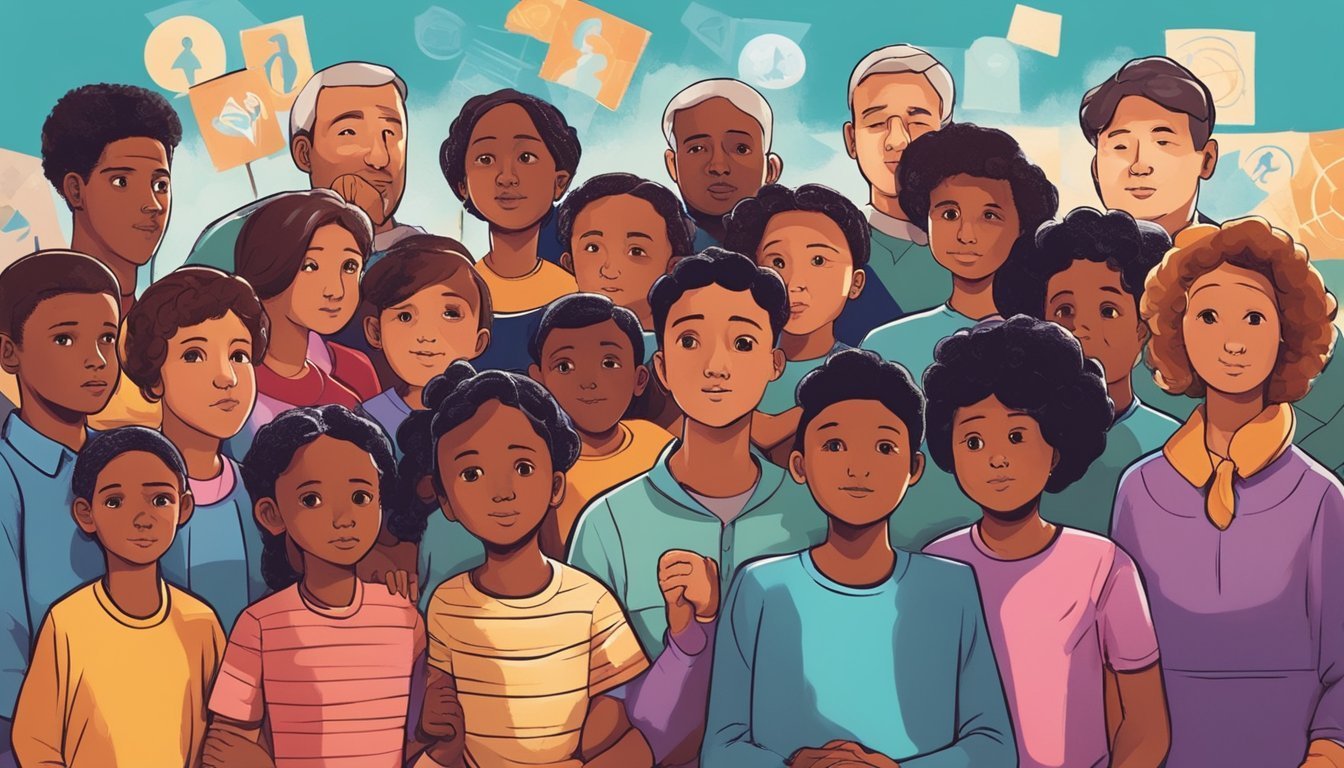Parenting is a complex journey that requires us to navigate the current realities of our world while inspiring hope for a better tomorrow.
This delicate balancing act involves not just individual struggles but also the broader influences of society, culture, and politics.
Challenges of Parenting in a Political Climate
As parents, we inevitably carry our childhood experiences into our own parenting styles.
Even with the best intentions, we often find ourselves projecting our own beliefs onto our children.
Teaching them to advocate for themselves and to show compassion for others can become a complicated and sometimes contradictory task.
We may want to shield them from society’s harsh realities, but this protection can backfire; children tend to see through attempts at deception, which can lead to feelings of betrayal if they later discover they were misled during important developmental years.
The challenges of parenting are amplified during times of social unrest and political turmoil.
As a father of two during Donald Trump’s first term, I worked to instill values of kindness, integrity, and civic duty in my kids, often in opposition to the prevailing political climate.
Now, as a father of three, the prospect of a second Trump term fills me with unease, particularly regarding its potential impact on my children and on our democracy.
In this context, important questions arise about how families can continue to nurture beliefs in a fair and compassionate world when such ideals seem overshadowed by a powerful figure like Trump.
The task of fostering an environment of kindness and educational improvement becomes increasingly challenging when such figures dominate public discourse.
Impact of Trump’s Legacy
A second Trump administration could usher in a troubling phase marked by divisive rhetoric that threatens marginalized communities, including children.
Parents who aspire to raise empathetic and respectful children face tough dilemmas in a political climate that often celebrates negative behavior.
Looking back at Trump’s first term, we witnessed alarming patterns: rising hate incidents in schools and increased bullying, particularly aimed at women and those who oppose him.
These societal shifts are deeply concerning for any responsible parent.
Trump’s legacy is also marked by a consistent pattern of dishonesty.
His unfounded claims about immigrants, for instance, led to violence against innocent individuals, fostering an environment of fear and mistrust.
Moreover, Trump’s handling—or mishandling—of critical issues like the COVID-19 pandemic has perpetuated misinformation that endangered lives.
Any family would recognize that traits such as selfishness and deceit undermine healthy relationships.
The violent undertones of Trump’s rhetoric add another layer of anxiety.
His suggestions to use force against dissenters create a sense of instability, particularly for young Americans who might question the reliability of democratic processes—a cornerstone of our society.
Future Outlook for Parenting
For parents striving to model appropriate behavior, explaining this turbulent political landscape to their children is a monumental challenge.
The glorification of insurrectionists presents a stark contrast to the values of civic duty, complicating the narrative of heroism and morality for young minds.
Children, inherently perceptive, struggle to differentiate between real threats and inflated fears, which makes it hard to trust in democratic norms.
Today’s youth grapple with profound concerns: violence, financial uncertainty, and environmental crises.
Unfortunately, Trump’s policies have frequently intensified rather than alleviated these issues.
His push for more gun accessibility, tax benefits for the wealthy, damaging environmental policies, and cuts to educational programs do little to address the urgent challenges they face.
Within my community, many parents express confusion about how to discuss current events with their children.
The chaos surrounding January 6th and the celebrated narratives of violence against law enforcement create an unsettling atmosphere for young people yearning for a peaceful political environment.
Some families attempt to shield their children from political discussions, while educators and advocates push for a focus on educational progress.
Yet, a sense of optimism surrounding constructive engagement with Trump seems naive, overlooking the potential risks of ignoring detrimental behaviors.
While hope exists for a brighter future, it’s likely that these issues will persist.
This realization is not lost on the younger generation, who will undoubtedly perceive the contradictions in their upbringing against a backdrop of increasing moral ambivalence in leadership.
Source: The74million.org


